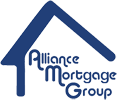How Does a Reverse Mortgage Loan Work?
A reverse mortgage loan uses home equity as collateral against a loan. Once a reverse mortgage loan has been approved, you will receive an amount of money from your lender—instead of making payments to your lender.
There are four forms these payments can take:
- A lump sum
- Monthly payments
- A line of credit
- Combination of payments and line of credit
This money can be used to pay off an existing mortgage loan or to pay for living and medical expenses. It is also tax free (consult your tax adviser for details).
The amount of the loan depends on:
- The amount of equity in the home
- The age of the homeowner
- Current interest rates
Apart from the age requirement (62 years old), the other primary stipulation of a reverse mortgage loan is that the homeowner use the home as a primary residence.
What makes a reverse mortgage loan particularly unique—and appealing—is:
- It can be a tax-free way to access the equity in a home.
- It is a non-recourse loan. This means that even if the value of the property falls below the balance of the loan when due, neither the homeowner nor his/her heirs are responsible for the deficit. Because the loan is federally insured, any shortfall will become the responsibility of the government.
- It never requires payment on the principal or interest (until the homeowner moves or dies).
- It does not interfere with Medicare or Social Security benefits (consult an adviser for details).
No payments are ever made on the loan until one of three events occurs:
- The homeowner dies
- The homeowner moves to another residence or fails to live in the property for 12 consecutive months
- The homeowner fails to pay property tax or insurance bills on the property.
After any of of these events, the loan becomes due. If the homeowner has died, the property will simply revert to the lender, and its value will be used to pay off the loan. If the home equity is greater than the loan amount, the excess will pass to the heirs. If, however, the loan amount is greater than the value of the property, the deficit will be assumed by the government.
Homeowners or heirs can pay off the loan at any point if they decide to they no longer want to have a reverse mortgage loan.
Getting Started
Here are the steps to take if you are interested in a reverse mortgage loan:
- Determine Whether a Reverse Mortgage Loan Is Right for You
Reverse mortgage loans are only available to people who meet certain criteria. A mortgage company that specializes in reverse mortgage loans, such as Alliance Mortgage Group, can quickly help you determine if you qualify for this type of mortgage loan and whether this will be the right fit for your needs. - Get HUD Counseling
In order to qualify for a reverse mortgage loan, you are required to attend a HUD counseling session with an approved HECM counselor either by phone or in person. This ensures you are:- Aware of all the pros and cons
- Understand the process fully
- Get your questions answered
After your counseling session, you will get a certificate, which is submitted with your application.
- Apply and Get Approved
Jeff Beattie at
Alliance Mortgage Group specializes in reverse mortgages. Give him a call today at 720-598-0506 to see if this is the right choice for you!




